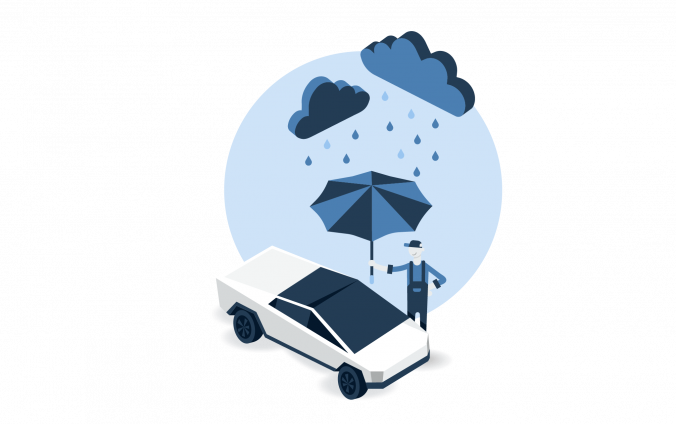While the rain can bring a sense of renewal and freshness to the air, it doesn’t quite have the same effect on our vehicles. Contrary to the belief that rainwater acts as a natural cleaner, it actually necessitates a thorough wash afterward. Here’s why washing your car post-rain is not just about aesthetics but crucial for its upkeep and longevity.
1. Contaminants in Rainwater
Rainwater isn’t the distilled water many imagine it to be; it’s a cocktail of pollutants picked up from the atmosphere. Dust, pollen, industrial pollutants, and even particles from vehicle emissions are carried by raindrops. When the rainwater evaporates from the surface of your car, these pollutants are left behind, clinging to the paint. Over time, these contaminants can corrode the paint and protective coatings, leading to costly damage.
2. The Rust Factor
Rain might seem harmless, but it’s a silent enemy against metal. The moisture from rain can seep into every nook and cranny, finding its way into tiny scratches or chips in the paint. This moisture starts the oxidation process of the metal beneath, leading to rust. Regular washing post-rain helps remove moisture and the minerals that contribute to corrosion, thereby mitigating the risk of rust.
3. Acid Rain: A Clear and Present Danger
One of the more insidious forms of precipitation is acid rain, which is rainwater mixed with pollutants like sulfur dioxide and nitrogen oxides. These substances can lower the pH of rainwater, making it acidic enough to eat away at the car’s paint and clear coat over time. Washing your car after exposure to acid rain can prevent these chemicals from causing long-term damage.
4. Battling Water Spots
The minerals found in rainwater, such as calcium and magnesium, don’t evaporate. Instead, they remain on the car’s surface as water spots. If not promptly attended to, these spots can etch into the paint, becoming a permanent eyesore. Regular washes after rain help avoid the formation of these spots, maintaining the integrity and appearance of the car’s exterior.
5. Visibility for Safety
The importance of clear visibility while driving cannot be overstated. Rain can smear dirt and grime across windshields and windows, reducing visibility and increasing the risk of accidents. A thorough wash after the rain includes cleaning the glass surfaces, ensuring drivers have unobstructed views of the road.
6. Preserving Value and Longevity
A car is a significant investment, and regular maintenance, including washing after rain, preserves its value and extends its lifespan. The build-up of contaminants and the onset of rust can lead to costly repairs and decrease the vehicle’s resale value. By maintaining the car’s aesthetic appeal, you’re also ensuring it commands a better price on the market.
7. The Psychological Boost
Beyond the practical reasons, there’s a psychological benefit to driving a clean car. It’s a reflection of the owner’s pride and care for their possessions. The act of washing your car, especially after it’s been dirtied by the rain, can be a cathartic experience, offering a sense of accomplishment and satisfaction.
In Conclusion
Washing your car after the rain might seem like an additional chore, but it’s a critical step in vehicle maintenance. It’s not just about keeping your car looking good; it’s about preserving its health, ensuring safety, and maintaining its value. Recognizing this, we at Washos are excited to extend a special offer exclusively designed for the aftermath of rainy days.






